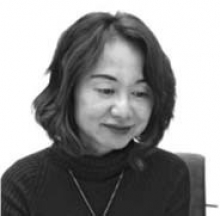ChEMS Seminar: Creating New Energy Transduction Material Platforms

University of California, Merced
Abstract: The main research theme of Prof. Lu’s functional nanomaterial lab is to rationally design, synthesize and fabricate high‐performance transducer material platforms that enable many critical technologies. In this talk, she will discuss the following three research thrusts.
Her lab has designed reproducible 3D carbon scaffolds that can maintain their porous architecture during down-stream processes (e.g. acid treatment and surface functionalization) for consistent and efficient mass and electron transport. Currently new surface functionalization strategies are being developed for electrocatalysis such as the oxygen reduction reaction, a key process for polymer electrolyte membrane fuel cells and the metal-air battery technology.
Her lab has revealed a new sub-molecular switch, a dibenzocyclooctadiene (DBCOD), a hinge, which consists of a flexible eight‐membered ring connecting two rigid phenyl rings. Like proteins, it can undergo a conformational change using a low‐energy stimulus such as near infrared photons. A polymer system that contains a small amount of DBCODs without any processing optimization exhibits an anomalous giant thermal contraction. The thermal contraction value is about 10 times greater than the second best reported system. The discovery of this new submolecular switch opens a pathway to create low-thermal expansion polymers and enable the development of low-energy driven micro- and nano-actuators etc.
Her lab is also creating a stimuli-responsive polymer-based scaffold that can deliver spatially and temporally defined mechanical forces onto cells. Human fetal hepatocytes seeded on this new dynamic scaffold change their shapes in response to mechanical force induced by near infrared with no obvious detrimental effect on cell viability. This is the first demonstration of a cell seeding platform that can impose spatiotemporal mechanical forces onto cells.
Biography: Jennifer Lu is one of the first three faculty members who established the Materials Science and Engineering program at UC Merced ‐‐ Californiaʹs newest research niversity. Prior to joining UC Merced, she acquired ten years industry experience at IBM and Agilent Technologies. She holds over 20 patents related to device fabrication, and consistently publishes her work in high impact factor journals. She was a recipient of the DARPA Young Investigator award. She was an invited participant in the Frontiers of Science and Engineering workshop co‐sponsored by NAE, NAS, and the Brazilian Academy of Sciences. She is Director of the Merced NAnomaterials Center for Energy and Sensing (MACES) sponsored by NASA.
Share
Upcoming Events
-
MSE Special Seminar: Architecting 3D Complex Materials for Sustainability
-
MSE Special Seminar: Decarbonizing Industries for a Climate-resilient Future - From Renewable Energy to Sustainable Material Recovery
-
CEE Seminar: BIM and the Digital Twin
-
MSE Special Seminar: Revolutionizing Battery Technology - Engineering Quantum Materials for Enhanced Safety and Performance in Solid Electrolytes
-
MSE Special Seminar: Designing Sustainable Soft Matter from the Molecule Up
